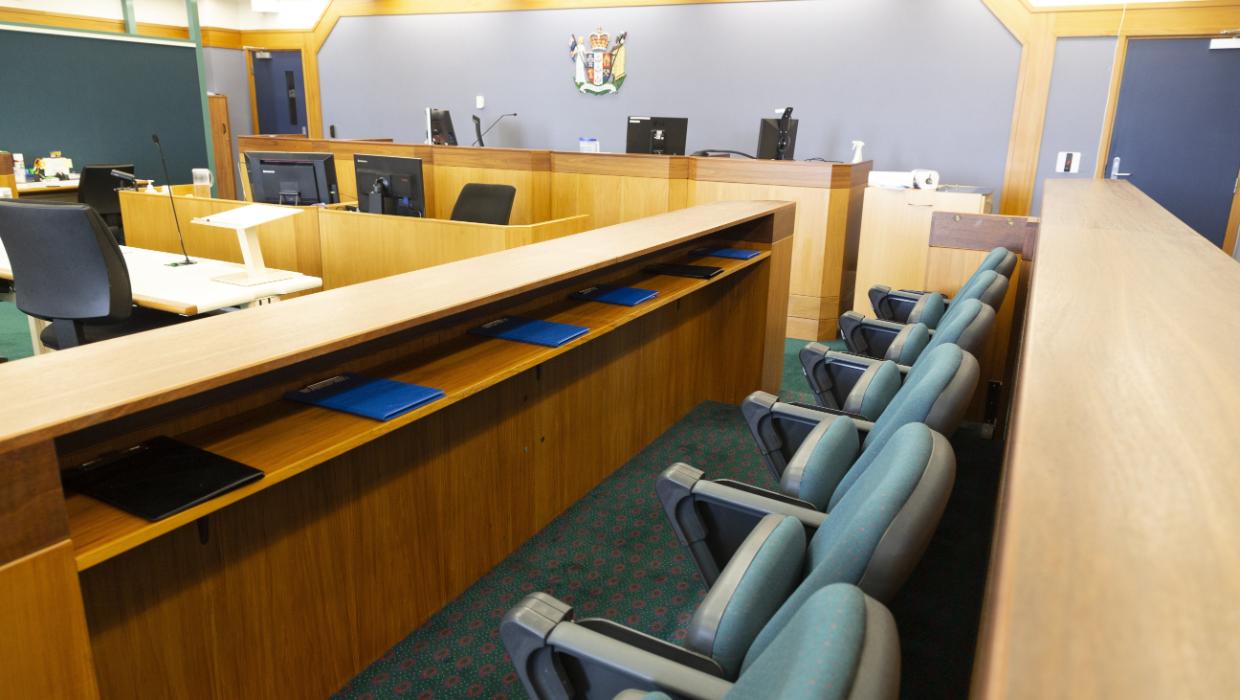Business
Government Faces Pressure to Update Jury Fees After Two Decades

Juror compensation in New Zealand has remained unchanged since 2004, raising concerns about the accessibility of jury service for average citizens. Currently, jurors receive a fee of only $31 for a half-day and $40 for longer periods, significantly lower than the adult minimum wage of $23.50. This lack of adjustment has sparked debate, especially in light of a petition presented to Parliament urging the Government to align juror fees with minimum wage standards.
The issue of juror compensation was brought to the forefront by legal experts who caution that low fees risk creating a jury pool dominated by wealthier individuals. Rachael Evans, a senior law lecturer at the University of Canterbury, stated that it is unrealistic to expect individuals to interrupt their lives and financial responsibilities for jury duty without adequate compensation. “People cannot afford to put their lives on hold for such low rates,” Evans remarked.
Jurors who serve during evenings may receive up to $163 for extended days, but the base fees still reflect a rate of approximately $10 per hour. The fees were last set nearly 20 years ago, a fact that has prompted calls for a review. Jemma McClymont, a policy advisor at the Ministry of Justice, explained that these payments are not meant to function as a wage. She emphasized that jury service is a civic duty that should be undertaken by all citizens when called upon.
Despite the civic duty perspective, the reality is that many employers are not legally required to supplement juror fees. This lack of obligation means that those in precarious employment may find it particularly challenging to serve. Evans pointed out that if jury duty is only accessible to those who can afford to serve, it undermines the very principle of having a jury represent a cross-section of society.
The Ministry of Justice has acknowledged that while jurors can request to be excused due to financial hardship, it does not track how often this occurs. Additionally, estimates suggest that increasing juror fees to match the minimum wage could cost the Government up to $11.8 million.
Justice Minister Paul Goldsmith commented on the situation, stating that the fees are not intended to replace lost wages. He noted that while the Government has a busy legislative agenda, potential changes to juror fees could be considered in the future when resources allow.
As the debate continues, many advocate for a review of juror compensation to ensure that jury duty remains a viable option for all citizens, not just those who can afford to take time away from work without adequate financial support. The petition and ongoing discussions highlight the significant implications of juror fees on the justice system’s accessibility and integrity in New Zealand.
-

 World3 months ago
World3 months agoTest Your Knowledge: Take the Herald’s Afternoon Quiz Today
-

 Sports3 months ago
Sports3 months agoPM Faces Backlash from Fans During Netball Trophy Ceremony
-

 Lifestyle3 months ago
Lifestyle3 months agoDunedin Designers Win Top Award at Hokonui Fashion Event
-

 Sports3 months ago
Sports3 months agoLiam Lawson Launches New Era for Racing Bulls with Strong Start
-

 Lifestyle3 months ago
Lifestyle3 months agoDisney Fan Reveals Dress Code Tips for Park Visitors
-

 Health3 months ago
Health3 months agoWalking Faster Offers Major Health Benefits for Older Adults
-

 World4 months ago
World4 months agoCoalition Forms to Preserve Māori Wards in Hawke’s Bay
-

 Politics3 months ago
Politics3 months agoScots Rally with Humor and Music to Protest Trump’s Visit
-

 Top Stories4 months ago
Top Stories4 months agoUK and India Finalize Trade Deal to Boost Economic Ties
-

 Entertainment3 months ago
Entertainment3 months agoExperience the Excitement of ‘Chief of War’ in Oʻahu
-

 World4 months ago
World4 months agoHuntly Begins Water Pipe Flushing to Resolve Brown Water Issue
-

 Science3 months ago
Science3 months agoNew Interactive Map Reveals Wairarapa Valley’s Geological Secrets









